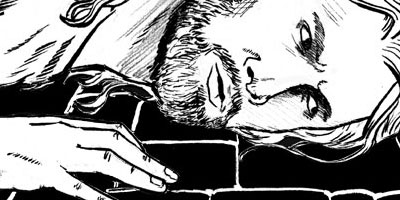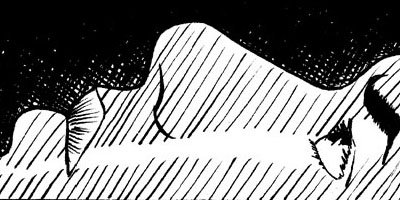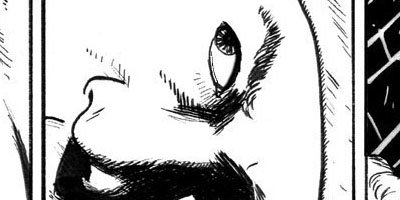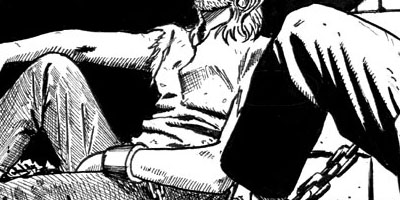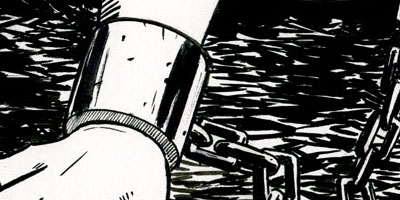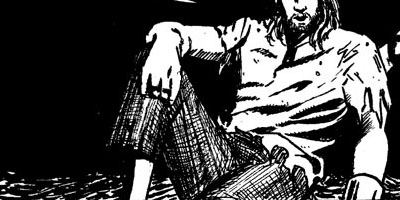
31
Jan
28
Jan
How To Retroactively Make ‘Infinite Crisis’ Make Sense
Posted by John Seavey Published in Comics, General Nerd ShitThe big problem with One of the biggest problems with One of the many, many vast problems with the 2005 crossover ‘Infinite Crisis’ is the way that everyone acted so wildly out of character. And I do mean everyone: The series started with the premise that Alexander Luthor, posing as his…um, father-ish thing…Lex, has organized almost all the super-villains in the world into a single cohesive group by using their fear of being brainwashed like Doctor Light. Yes, that’s right, Black Adam, the guy who rips criminals in half, is standing up for a serial rapist. Oh, and Captain Nazi and the Penguin are working together on this one, and Psimon has decided he’s comfy being one of the rank-and-file, as has Doctor Sivana, and Chemo is just fine lying in wait until they’re ready for him, and Doctor Psycho has really toned it down to work with the group. Because that’s Doctor Psycho in a nutshell, a guy who’s really capable of restraining his baser impulses when needed.
And the heroes? Batman’s gone completely off the deep end into paranoia, creating a giant satellite to “watch over” Earth’s superhumans and make sure they don’t get up to any mischief. Unsurprisingly, it goes berserk and causes more problems than it solves. (Batman is never held culpable for the many, many deaths caused by his creation, of course.) Wonder Woman has become murderously ruthless (although the collected version retcons away her attempted murder of Mongul by changing the line, “What do you think I was going to do?” to “I was going to tie him up, what do you think I was going to do?” Future collections will change it to, “I was thinking about giving him a guided tour of our headquarters, followed by tea and crumpets and a sincere discussion of the ethical problems inherent in his behavior. Why, what did you think I was going to do?”) And Superman merely waffles, consumed with self-doubt over his hopes at making the world a better place.
Power Girl is captured by Alexander Luthor, and it turns out he’s working with…the Psycho-Pirate! But according to Alexander, he’s not using PP’s emotion control powers at all to influence the heroes! They’re just like that already, because of how imperfect the world is. Using the unbelievably powerful emotion-manipulator to manipulate the emotions of his allies and enemies to help his master plan along, why…it simply wouldn’t be sporting!
Obviously, the whole plot makes a lot more sense if you assume that Alexander is making use of the Psycho-Pirate to keep his army of murderous, treacherous, violent sociopaths from turning on each other, while turning the heroes against each other. But actually, you can go even further than that. Think about the last time you saw Alexander Luthor, Kal-L, and Earth-Prime Superboy, back in ‘Crisis on Infinite Earths’. Did they really seem all that hateful, evil, and obsessed with bringing back the Multiverse? Why, no, they didn’t. Was there another character out there who was evil and obsessed with bringing back the Multiverse, one who’d actually tried it once before in Grant Morrison’s “Animal Man” run? Why, yes, I do believe there was.
‘Infinite Crisis’ makes the most sense if you work on the assumption that it was the Psycho-Pirate behind it all. He was the one who planted the seeds of obsession that grew in the exiles from the Multiverse, all in pursuit of his goal of making the universe the way he remembered it. Tragically, he wouldn’t live to see his success, as all his emotional manipulation couldn’t stop Black Adam from squishing his head like a grape. (Look, kids! Comics!) It still has a lot of problems as a series, but at least it makes sense on a fundamental level.
27
Jan
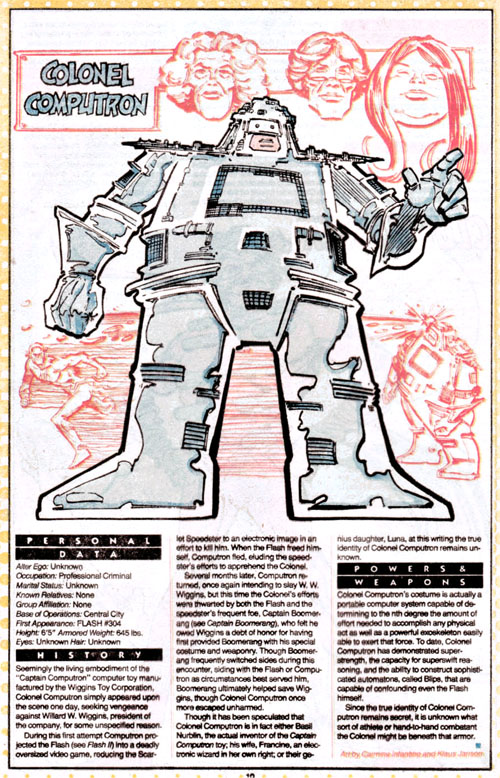
Hoo boy.
You know that Colonel Computron dates back to a certain time: that brief moment of about five or six years when computers were both becoming increasingly familiar to the general public, but were still basically considered to be magic. His computer-suit gives him super-strength and super-intelligence because computers can do anything!
Plus, he looks godawful. Carmine Infantino was always the Silver Age artist who felt like he wanted to start the Golden Age over again: just look at his character designs. Other than the modern Flash costume, they are mostly terrible: either garish and ridiculous (Trickster, Pied Piper, Top, Rainbow Raider) or minimalist and dull (Heat Wave, Weather Wizard, Mirror Master). He only hit the sweet spot occasionally, with Captain Cold or Abra Kadabra, and Colonel Computron is far, far away from the sweet spot; on the page he manages to be just a big boring barely-articulated silver suit.
Of course, this means that, being a pathetic lame villain best relegated to the backbins of comic history, Colonel Computron was brought back multiple times, although eventually they just started calling him “Computron” because, I don’t know, maybe that was less pathetic if you looked at it the right way. I’m pretty sure he got killed off in an issue of Checkmate. I’m sure that made the comic FIVE TIMES AS THRILLING.

24
Jan
20
Jan

Ghost has become a reasonably popular supporting characters in superhero comics over the past few years. Unfortunately for this Ghost, I’m talking about Marvel’s Ghost, the Iron Man villain and Thunderbolt. DC’s Ghost, on the other hand, languishes in relative obscurity.
Which is a pity because in a lot of ways they’re the same character: scientist/engineer invents phasing thingy, uses it to steal stuff, attracts ire of Forces of Status Quo (Iron Man/Captain Atom), feud ensues. Of course, Marvel Ghost arrived later and with a more inspired creative team (the classic Michelinie/Layton run on Iron Man, versus later Steve Ditko during his Charlton run – and not everything could be Blue Beetle or the Question, frankly, which is one of the reasons Captain Atom has always been the Michael Biehn of superheroes), which made a lot of difference; his gradual shift of emphasis from thief to anticorporate terrorist has helped rejuvenate the character and make him more relevant.
DC Ghost, in comparison, has languished as part of DC’s back catalog. You can almost see the ticket he’s holding in his hand that says “due to be killed off by another supervillain who needs to look badass, 2014.” Because these days that is just how DC rolls; there won’t be any attempt to use the character because someone like Ghost is just a costume to passed from nameless baddy to nameless baddy, like Black Spider or Hyena. It’s a stylistic choice, and not an indefensible one (after all, if you want your story to focus on a hero and his life, the villain can literally be just an empty mask), but I’m not going to pretend I’m fond of the approach.

19
Jan
Supposedly Not Improved Archie
Posted by MGK Published in Archie (Improved Or Otherwise), Comics, Interactive Fun Time Party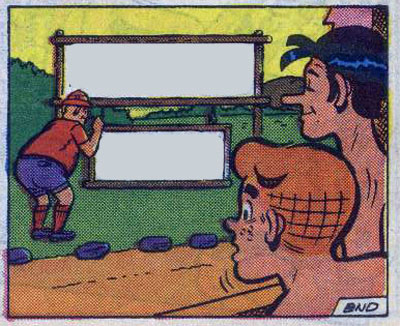
17
Jan
13
Jan
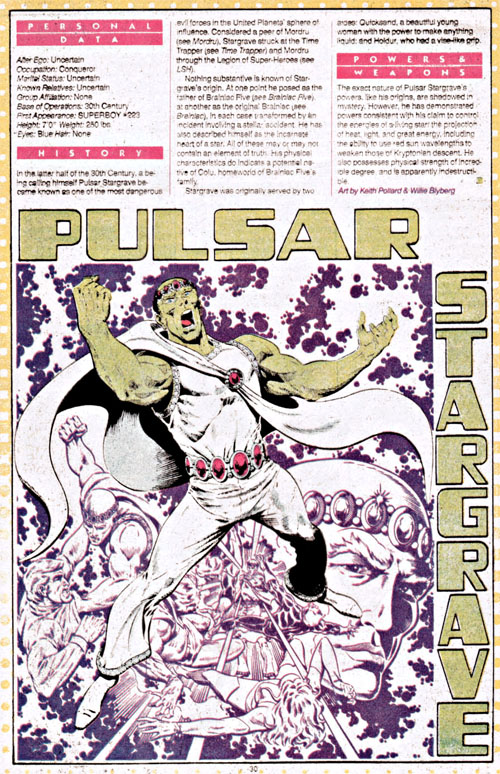
Pulsar Stargrave has always been, to me, one of the criminally underused ideas in Legion history, for a few reasons. He has an awesome name, for starters. He’s got a great look, too: a neo-Roman togacape, dressed in imperial white, give the impression of someone who knows he’s in charge but it’s stripped down enough that you know he can rumble if he wants to do so. And, of course, he’s green, which lets you have an ambiguous tie to Colu and/or Brainiac Five if you want (and you should).
Of course the net result of all this is that Pulsar Stargrave has barely been touched. He’s been used barely at all – and one of those times was in the Legion of Substitute Heroes one-shot where he was more or less just played for laughs by Keith Giffen as a generic Big Bad suitable for antagonizing against Matter-Eater Lad.1 On top of that, his powers are vague in all the wrong ways. He’s Generic 70s Cosmic Baddie and he doesn’t have to be.
I think there’s a lot of potential here that hasn’t been tapped. You can make Pulsar Stargrave Brainiac 7, for example, a Brainiac from the future come to conquer easier temporal targets. Or make him the Anti-Matter Universe’s equivalent of Brainiac 5 – the logical endpoint of what would happen if the smartest person in the universe was completely amoral, self-interested, and power-hungry. (You could also give him an evil goatee that way, and don’t think for a second that this wouldn’t be completely awesome.) The point is that right now Pulsar Stargrave is just waiting for a good idea to show up and use him as its vehicle, and he would make an awesome vehicle in that respect.

- Did he show up in R.E.B.E.L.S. recently? Did I imagine that? I’m not sure. [↩]
11
Jan
A while back, in the comments section on my post about the five best comics deaths, I asked people to remind me to talk about my Sandman theory. Nobody did in all this time, but I’m going to tell you all about it anyway. This is, quite possibly, the Essence Of Blogging.
This theory has to do with a plot development that, strangely, never seemed to be the subject of much speculation, despite the fact that it would seem to be one of the key developments in the series. Perhaps this is because it happened so late in the series’ run, or because there never seemed to be much chance to get an answer on the topic–apart from a cryptic comment or two in the book’s afterword, I don’t believe Gaiman has ever discussed it. In ‘The Kindly Ones’, Loki and Puck kidnap Daniel Hall, with the apparent intent of driving his mother Lyta mad and sending her on a quest for vengeance against Morpheus. Which, to all intents and purposes, they succeeded magnificently at.
I say “apparent intent”, because it’s clear that they had greater intentions than merely framing Morpheus for kidnapping. They had some sort of plan that involved burning away Daniel’s mortality, leaving just the part of him that gestated in dreams, and they hinted that they were working for someone else. But the identity of the mastermind behind the plan was never uncovered in the series, and to the best of my knowledge, Gaiman has never revealed his or her identity in any subsequent source. So who was it that was behind the plan to abduct Daniel? Who set the events in motion that ended in Morpheus’ tragic death?
I think it was Morpheus.
Think about it. Everyone assumes that Lyta was being irrational for leaping to the conclusion that Morpheus was responsible, but really, how irrational was it? He out and out said, “Take good care of your baby. One day I will come back for it.” The two actual kidnappers were both connected to Morpheus (Loki says, “I will be under an obligation to no-one,” which seems, on the surface, to suggest that he’s getting rid of Morpheus to get out from under his debt…but which could equally mean that he’s performing a service to pay it.) And the plan to burn away Daniel’s mortality does seem to suggest that his gestation in dreams was why he was chosen…exactly why Morpheus was interested in him.
What if Morpheus wanted to take Daniel for some purpose, something that involved burning away the child’s mortality, and “hired” Puck and Loki to do the job? What if they saw it as an opportunity to do mischief to their “employer”, necessitating Morpheus to send the Corinthian after them? And what if, on a subconscious level, he knew the act would be self-destructive? Perhaps he had two plans for Daniel…the plan he let himself know about, and the plan that prepared his successor. “But the stuff you do, where you do it, and you won’t even admit to yourself it’s what you’re doing. What would you call it?” That’s how Death described him, at the end. It fits the theory pretty well, doesn’t it?
Of course, we may never know. As I say, Gaiman’s never explained it. But it’s what I’ll always believe. Dream couldn’t let go of his kingdom the way Destruction did, but he couldn’t go on the way he was. He needed a successor, and found one in the most devious way possible. Death was his escape, and he planned it so meticulously that even he couldn’t stop him.
10
Jan
5
Jan
Improved Archie Ultra-Lite
Posted by MGK Published in Archie (Improved Or Otherwise), Comics, Interactive Fun Time Party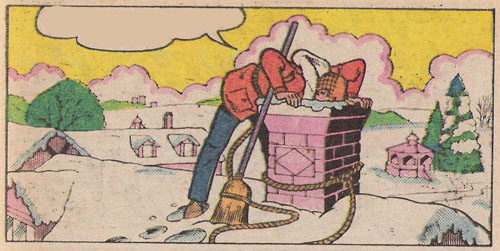
The Social Network. All the for-reals movie critics have already said how brilliant this is and they are basically completely right about everything. People complaining that the movie isn’t completely accurate – other than missing the point of movies generally – are mistaken because the accuracy here is about capturing the entire ethos of ruthless vision that led to the 2000s dotcom re-boom. Jesse Eisenberg gives what’s far and away the most brilliant performance of the year by any actor because he’s simultaneously so compelling and sympathetic while being so unlikeable and cold, and Aaron Sorkin’s script tones down his usual crutches to the point where it’s better than anything else he’s previously written.
Sid Meier’s Civilization: The Board Game. Out of all the new boardgames I played in 2010, this was my favorite: a three-hour brainburner that genuinely captures the feel of playing a marathon game of Civ on your computer, except there’s no computer and you get the fun of playing against three other opponents face-to-face. Multiple victory conditions, variant civilization rules, tech advancement for strategic purpose – everything you would expect out of a game of Civ is here, and produced with screamingly awesome quality.
The first and third episodes of Sherlock. I can’t in good conscience give the whole series a total endorsement because the second episode, “The Blind Banker,” is just not in the league of the other two; cheap Orientalism plus a less-than-compelling mystery make for teevee that is only passably entertaining at most. But the first and third episodes are fantastic stuff – the best visual description of texting yet put to screen, genuinely inventive and fun mysteries, brilliant renditions of the Holmes thought process and of course Benedict Cumberbatch and Martin Freeman’s superb Holmes and Watson turn what could have been a goofy lark into some of the best long-form telly of the year.
ArchAndroid by Janelle Monae. Any year Janelle Monae drops a new album it will make this list.
Beasts of Burden by Evan Dorkin and Jill Thompson. As I get older, and to an extent more productive, the “I wish I had written that” feeling occurs less and less often – that sheer burst of envy you feel when somebody writes something that is so fucking good that is, in retrospect, such an obvious idea that it should have occurred to you years ago, but it didn’t. Beasts of Burden is the only comic all year that made me feel that way: gorgeous, intelligent, crucially not overwritten or overexplained (which would have just ruined it) and mostly just vital. A cat clawing a demon in the eyes felt more urgent than any superhero comic all year long, which says something about superhero comics.
Community. The second half of season one and the first half of season two combine for one of the most virtuosic meta-seasons of any show ever. Community is brilliant not because of the thematic parodies it does (in episodes like “Contemporary American Poultry,” “Epidemiology,” “Conspiracy Theories and Interior Design,” and above all “Modern Warfare”), although those are brilliant. No, Community is brilliant because of its exacting attention to detail in crafting its stories: no show is as efficient at using every single inch of screen real estate and every second of running time to cram in as much story as possible. Think Abed’s blink-and-you’ll-miss-it subplot in “The Psychology of Letting Go,” or the fact that the show actually gives away the ending of “Cooperative Calligraphy” in the first two minutes in a way that nobody watching will notice the first time through, or the numerous references to the fact that Jeff and Britta keep hooking up on the sly without ever actually bothering to address it in a main plotline (until they do, of course) – but then bear in mind that all of this detail and craft is simultaneously used to further develop and strengthen all of the show’s cast and drop as many gags as humanly possible.
Animal Kingdom. The best crime movie in years. Animal Kingdom features a teenaged protagonist actually acting like a real teenager (sullen and moody), some of the most vivid and genuinely evil characters to come along in a very long time (when one character matter-of-factly explains what is to be done about another – you’ll know it when you see it – it’s just a tour-de-force of the filmmakers daring you to believe that this isn’t happening when it is), and a plot that surprises out of old-school Hitchcockian tension rather than boring old shock value. Staggeringly good movie.
Matt Smith as the Doctor. Because he’s really, really good at it.
3
Jan
27
Dec
20
Dec
Search
"[O]ne of the funniest bloggers on the planet... I only wish he updated more."
-- Popcrunch.com
"By MightyGodKing, we mean sexiest blog in western civilization."
-- Jenn
Contact
MGKontributors
The Big Board
MGKlassics

Blogroll
- ‘Aqoul
- 4th Letter
- Andrew Wheeler
- Balloon Juice
- Basic Instructions
- Blog@Newsarama
- Cat and Girl
- Chris Butcher
- Colby File
- Comics Should Be Good!
- Creekside
- Dave’s Long Box
- Dead Things On Sticks
- Digby
- Enjoy Every Sandwich
- Ezra Klein
- Fafblog
- Galloping Beaver
- Garth Turner
- House To Astonish
- Howling Curmudgeons
- James Berardinelli
- John Seavey
- Journalista
- Kash Mansori
- Ken Levine
- Kevin Church
- Kevin Drum
- Kung Fu Monkey
- Lawyers, Guns and Money
- Leonard Pierce
- Letterboxd – Christopher Bird - Letterboxd – Christopher Bird
- Little Dee
- Mark Kleiman
- Marmaduke Explained
- My Blahg
- Nobody Scores!
- Norman Wilner
- Nunc Scio
- Obsidian Wings
- Occasional Superheroine
- Pajiba!
- Paul Wells
- Penny Arcade
- Perry Bible Fellowship
- Plastikgyrl
- POGGE
- Progressive Ruin
- sayitwithpie
- scans_daily
- Scary-Go-Round
- Scott Tribe
- Tangible.ca
- The Big Picture
- The Bloggess
- The Comics Reporter
- The Cunning Realist
- The ISB
- The Non-Adventures of Wonderella
- The Savage Critics
- The Superest
- The X-Axis
- Torontoist.com
- Very Good Taste
- We The Robots
- XKCD
- Yirmumah!
Donate
Archives
- August 2023
- May 2022
- January 2022
- May 2021
- January 2021
- December 2020
- October 2020
- June 2020
- March 2020
- January 2020
- December 2019
- October 2019
- February 2019
- January 2019
- December 2018
- April 2018
- March 2018
- February 2018
- January 2018
- December 2017
- November 2017
- October 2017
- February 2017
- January 2017
- December 2016
- November 2016
- October 2016
- September 2016
- August 2016
- July 2016
- June 2016
- May 2016
- April 2016
- March 2016
- February 2016
- January 2016
- December 2015
- November 2015
- October 2015
- September 2015
- August 2015
- July 2015
- June 2015
- May 2015
- April 2015
- March 2015
- February 2015
- January 2015
- December 2014
- November 2014
- October 2014
- September 2014
- August 2014
- July 2014
- June 2014
- May 2014
- April 2014
- March 2014
- February 2014
- January 2014
- December 2013
- November 2013
- October 2013
- September 2013
- August 2013
- July 2013
- June 2013
- May 2013
- April 2013
- March 2013
- February 2013
- January 2013
- December 2012
- November 2012
- October 2012
- September 2012
- August 2012
- July 2012
- June 2012
- May 2012
- April 2012
- March 2012
- February 2012
- January 2012
- December 2011
- November 2011
- October 2011
- September 2011
- August 2011
- July 2011
- June 2011
- May 2011
- April 2011
- March 2011
- February 2011
- January 2011
- December 2010
- November 2010
- October 2010
- September 2010
- August 2010
- July 2010
- June 2010
- May 2010
- April 2010
- March 2010
- February 2010
- January 2010
- December 2009
- November 2009
- October 2009
- September 2009
- August 2009
- July 2009
- June 2009
- May 2009
- April 2009
- March 2009
- February 2009
- January 2009
- December 2008
- November 2008
- October 2008
- September 2008
- August 2008
- July 2008
- June 2008
- May 2008
- April 2008
- March 2008
- February 2008
- January 2008
- December 2007
- November 2007
- October 2007
- September 2007
- August 2007
- July 2007
- February 2007
Tweet Machine
- No Tweets Available
Recent Posts
- Server maintenance for https
- CALL FOR VOTES: the 2021 rec.sport.pro-wrestling Awards
- CALL FOR NOMINATIONS: The 2021 rec.sport.pro-wrestling Awards (the Theszies)
- The 2020 RSPW Awards – RESULTS
- CALL FOR VOTES: the 2020 Theszies (rec.sport.pro-wrestling Awards)
- CALL FOR NOMINATIONS: The 2020 Theszies (rec.sport.pro-wrestling awards)
- given today’s news
- If you can Schumacher it there you can Schumacher it anywhere
- The 2019 RSPW Awards – RESULTS
- CALL FOR VOTES – The 2019 RSPW Awards (The Theszies)
Recent Comments
- George Leonard in When Pogo Met Simple J. Malarkey
- Blob in How Jason Todd Went Wrong A Second Time
- Cindi Chesser in Thursday WHO'S WHO: The War Wheel
- Scott Hater in Bing, Bang, Bing, Fuck Off
- dan loz in Hey, remember how we talked a while a back about b…
- Sean in Server maintenance for https
- Ethan in CALL FOR VOTES: the 2021 rec.sport.pro-wrestling A…
- wyrmsine in ALIGNMENT CHART! Search Engines
- Jeff in CALL FOR VOTES: the 2021 rec.sport.pro-wrestling A…
- Greg in CALL FOR VOTES: the 2021 rec.sport.pro-wrestling A…
